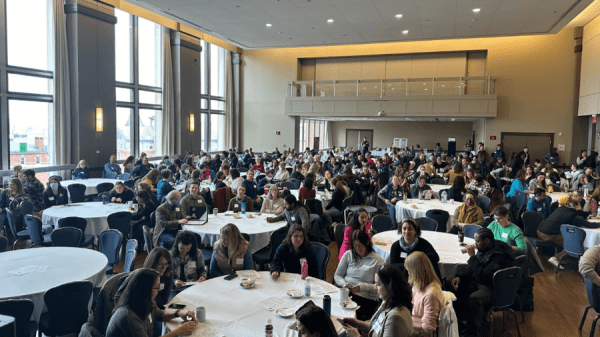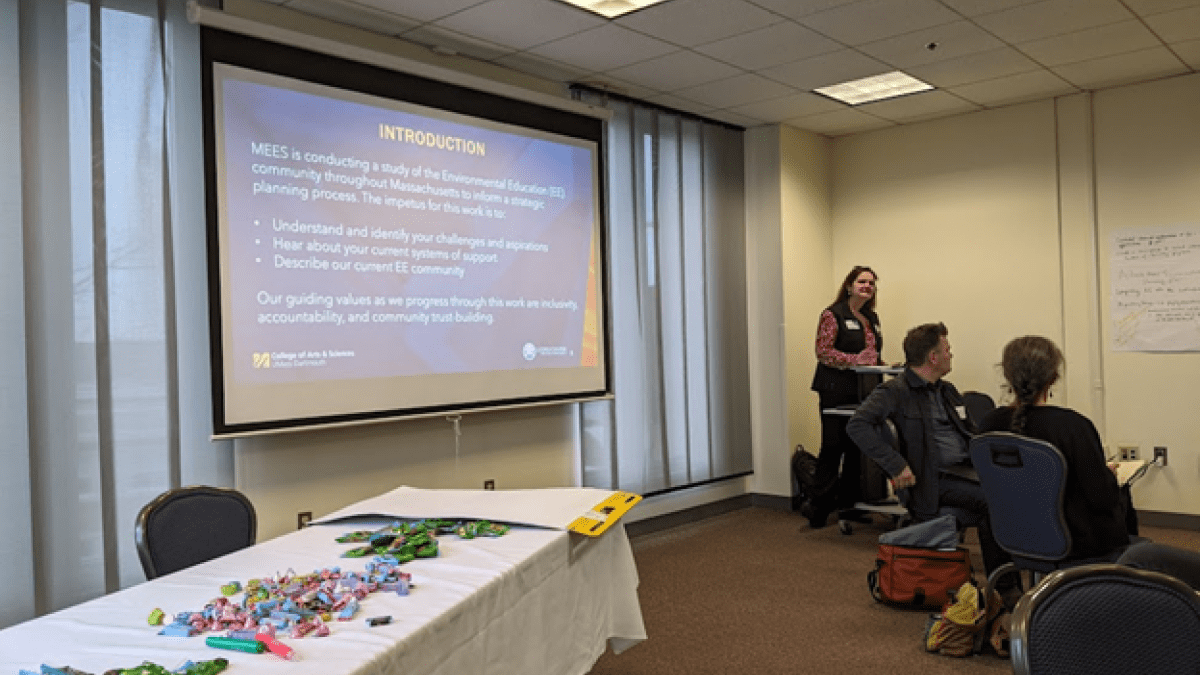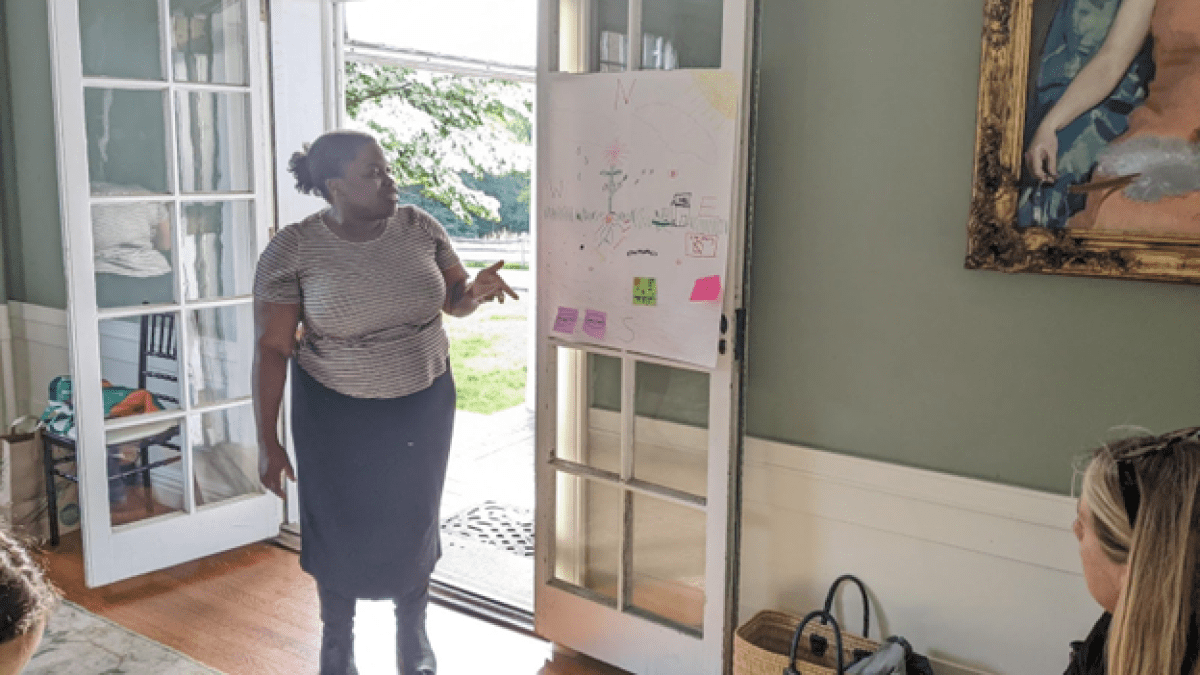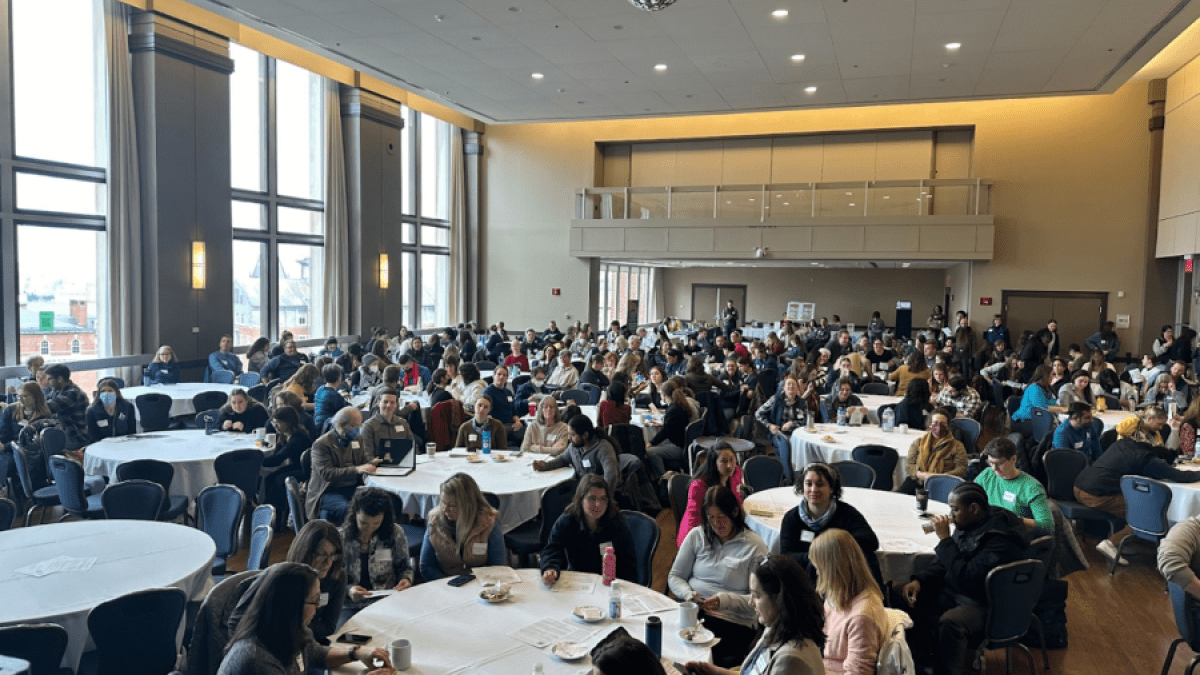Community-Engaged Strategic Planning in Massachusetts

Each month, NAAEE will post narratives from the CEE-Change Fellows as they implement their community action projects and work to strengthen environmental education and civic engagement capabilities, all supporting the mission of cleaner air, land, and water. Join us on their journey! The Civics and Environmental Education (CEE) Change Fellowship is NAAEE’s newest initiative to support leadership and innovation in civics and environmental education in North America. This ee360+ program is a partnership between NAAEE, US EPA, and the Cedar Tree Foundation.
I became an uncle this year, and have enjoyed watching my nephew experience the world through sounds and sights and most recently… flavors! It is only a matter of time before he starts toddling, chasing bugs, sledding in the snow, learning about frog life cycles, and playing with his friends outside. I care deeply about our planet, and it is during these moments of connection and rootedness that we cultivate our care for the planet and each other. At least, I know that has been my experience, and the experience of many others—connecting to nature alone, with family, during school and summer programs.
My wish for my nephew is that he has a healthy environment to grow up in, easy access to parks and open spaces with family and friends, opportunities to learn about environmental science and climate justice, and pathways to take civic action for causes he cares about.
My nephew is set up for success on all these fronts because of where he lives in Massachusetts, but the same isn’t true for all children in the rest of the state (let alone country or planet). That inequity is what motivates me as a CEE-Change Fellow—to work at the state level to improve environmental education infrastructure for all.
Addressing Inequities Through My Community Action Project
Since 2018, I’ve been involved with the Massachusetts Environmental Education Society (MEES) as a volunteer and now board member. MEES hosts an annual conference to provide professional development to environmental educators and strengthen relationships across the state. In recent years, MEES has come to appreciate how much more is needed in Massachusetts to support educators and communities learning about and working to tackle complex climate and civic issues. Many in our workforce feel isolated, undersupported, and close to burnout. Meanwhile, the sector is becoming more expansive and inclusive, questioning its history, assumptions, values, and composition. What can we do as a professional organization to better support the field? Our answer: A community-driven planning process to understand major needs and come up with a plan for MEES. This planning process is the focus of my CEE-Change Fellowship’s Community Action Project, wherein I have a leadership role in moving the work forward.
We’ve been on quite a journey to move forward with this plan…
The first step in our process was to focus on internal reflections and planning as a board. We strengthened our relationships, formed energized action teams, and articulated shared values for how to move the work forward—shout out to the MEES Strategic Planning team: Flor Philippe, Nicole Weber, and Jen Klein!
These values are:
INCLUSIVE - Thoughtfully engages voices across the environmental education community, especially working against the silencing power of racism, colonialism, ableism, anti-LGBTQ hate, and other forms of discrimination and disenfranchisement.
TRUST-BUILDING - Creates space for safe and brave connection among the EE community.
ACCOUNTABLE - Holds MEES responsible for authentically addressing the aspirations and needs of the environmental education community, in a way that creates meaningful long-lasting change.

MEES consultants hosted a pilot listening session during the MEES Annual Conference in March 2024. They shared a slideshow to introduce the session and provided candy for participants. Photo credit: Evan Kuras
From Vision to Action with the Help of CEE-Change Fellows
We recognized that we needed more capacity and expertise to implement a fully community-driven process ending with an actionable plan. So we mobilized funds to hire not one but two consultant teams. Fortunately for MEES, each team included a current or former CEE-Change Fellows (we are everywhere!). This synergy allowed for stronger collaboration and understanding of the values above.
Community Engagement with Hamza Malik (2023 CEE-Change Fellow), Rachel Stronach, Stephen Witzig from Lloyd Center - UMass Dartmouth
Our first team’s mandate was to conduct a learning process that included an online survey and six listening sessions across Massachusetts and online. The goal is to understand the current systems of support for the environmental education community as well as their challenges and aspirations. As of May 2024, we are in the early stages of planning the listening sessions, which we see as intentional opportunities to learn from segments of the environmental education community that have been underrepresented in MEES in terms of geographic, sector, and demographic representation. Historically, decisions within MEES have been shaped by the interests and expertise of our volunteer board and feedback we’ve gathered from attendees at our annual conference. However, we realize that this view is only a thin slice of our statewide community, and in particular, those who have the most power or comfort speaking up (i.e., our board is primarily white, mid-career or beyond, nonprofit professionals in Eastern Massachusetts). For the listening sessions, we envision partnering with 1–2 organizations that focus on a specific region, sector, and/or identity that we seek to engage and working together on convening educators to share their wisdom and expertise, aspirations and priorities, and ideas for the future of MEES.
Strategic Planning with Matt Kirchman (2021 CEE-Change Fellow) and Dan Yaeger - independent consultants
After we complete the community engagement portion, we will work with our second team to weave insights from listening sessions into creating a Strategic Agenda and Strategy Screen that focuses on organizational strategy (big-picture vision), programmatic strategy (how MEES serves its mission), and operational strategy (how MEES gets it all done).

MEES Board member and STAT Co-Chair Flor Philippe sharing a vision for the future of MEES during our summer retreat in June 2023. Photo credit: Evan Kuras
Lessons Learned:
1. Take an abundance mindset: When we first launched this process, we assumed we would hire a single consultant team to do the work. However, after receiving proposals from our top two teams, we realized that the teams offered complementary skill sets (and that we were effectively hoping to do two different but connected projects: community engagement + strategic planning). We made the hard but creative choice to mobilize funds to hire both teams, asking them to split up the work and collaborate together.
2. Focus on your values: We’ve consistently returned to our guiding values when making hard choices around hiring consultants, implementing surveys, and planning the listening sessions. Having these values has been helpful for our team to remain consistent and to be able to communicate with our consultants and community.
3. Move at the speed of trust: We have been moving slowly throughout the process - slower than we hoped. But we are moving at the speed at which we can trust each other, work together, and seek the trust of our partners. At times, this can be frustrating, but we’d rather do things slowly and intentionally, in good working relationship, than quickly and with the potential for harm.

Attendees at MEES’s Annual Conference in March 2024. Photo credit: Jen Klein
Looking Ahead
We have a lot of work ahead of us, but we are motivated by the teams we are working with and the positive feedback we’ve received from the environmental education community. Personally, I am hopeful that MEES can better support the community of environmental educators in a more sustainable and equitable way, where those who are shaping the decisions have the sharpest insight into the most pressing challenges for the workforce. Ultimately, it is my nephew and young people across Massachusetts that I hope can benefit the most from this work, so that opportunities abound to learn about our amazing planet, embrace a stewardship role, and take meaningful action.